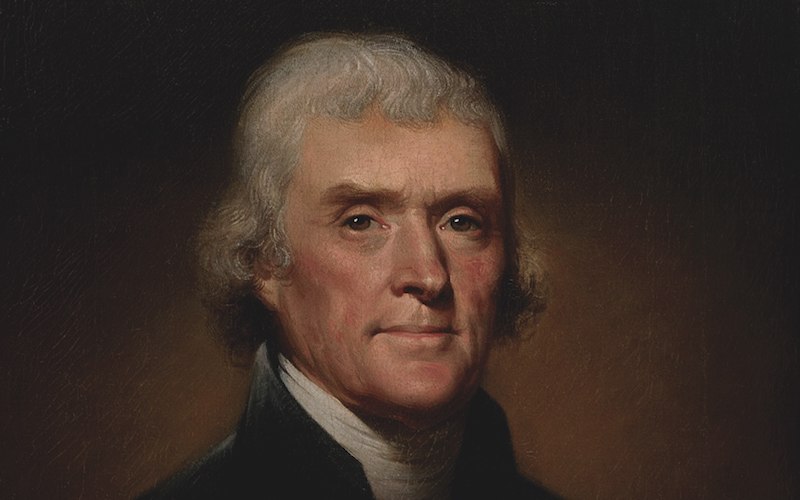Thomas Jefferson (1801-1809)
Episode #2 of the course Greatest US presidents by Patrick Allitt
Jefferson was one of the most highly educated and brilliant men of 18th-century America. His beautiful and ingenious Virginia house, Monticello, is a monument to his inventiveness. A planter, a lawyer, an amateur scientist, an astute observer of human behavior, and a genuine idealist, Jefferson drafted the Declaration of Independence in 1776. He was US ambassador to France in the 1780s, Secretary of State to President Washington in the early 1790s, and vice president in the late 1790s under President Adams.
His election is often called “The Revolution of 1800.” During the 1790s, political parties had begun to form, an unforeseen development that alarmed many Americans. Washington and John Adams were Federalists; Jefferson was a Republican. Nevertheless, he won, was admitted to be the winner, and took over peacefully. The world then had very few democracies. Elections and transfers of power created dangerous opportunities to the losing party, but the defeated Federalists accepted the result of the election, thereby enhancing American political stability.
The central event of Jefferson’s presidency, in retrospect, was the Louisiana Purchase. Louisiana then comprised all the headwaters of the Mississippi River up to the crest of the Rocky Mountains, the middle one-third of the continental United States as it is today. Most of the area was, as yet, unexplored by white Americans. The politically and economically important part of Louisiana was the mouth of the Mississippi River and the port of New Orleans; to possess them was to control trade on the river itself.
Napoleon, desperately in need of money to fight his wars in Europe, offered the whole area to Jefferson’s negotiators for $15 million. Though unsure of whether the Constitution entitled him to accept the deal, Jefferson also saw the opportunity as too good to miss. The Senate agreed and voted in favor of it, 24 to 7. At a stroke, the land area of the USA was doubled.
Jefferson sent two army captains, Meriwether Lewis and William Clark, to explore the Louisiana Territory with a group of about 30 soldiers. Their adventures on the Great Plains, their meetings with the Sioux, Mandan, and Shoshone, and their perilous boat ride down the Columbia River to the west coast, are one of the epics of American history. Lewis had prepared for the job by working as a White House aide to Jefferson, learning techniques of close observation, map-making, and accurate description.
In foreign policy, Jefferson was the first president to send the US Navy against a foreign enemy, the Barbary States of North Africa. Aiming to develop free trade and to suppress piracy, his ships bombarded the city of Tripoli (in today’s Libya), forcing its rulers to come to an agreement.
Struggling to avoid involvement in the Napoleonic Wars but harassed by British aggression on the high seas, including the impressment of American sailors, Jefferson declared an embargo on Anglo-American trade in 1807. The embargo made him unpopular with Federalists in New England, whose prosperity depended on the Atlantic trade. Still, it forestalled a costly war that the United States was in no position to fight successfully.
Jefferson was a slave owner but had a bad conscience about it. He intended to liberate his slaves, following the example of President Washington, but was too deeply in debt to be able to do so. Slaves then counted as valuable property, and since Jefferson had always lived beyond his means, he could not give them away, even to themselves. This situation, combined with the fact that he had a prolonged sexual relationship with his slave, Sally Hemings (his wife’s half-sister), has cast a shadow over his reputation. Two centuries of denials lost their credibility in the face of DNA tests in 1998.
The effect of Jefferson’s presidency was to re-orient the United States away from Europe and toward the great continental interior. Its exploration and development over the next century would transform a scantily populated area into an immensely rich source of food, minerals, and wealth and lay the foundation of America’s emergence as an economic and political superpower.
In the next lecture, we’ll jump forward to the election of 1860 and the crisis years of the American Civil War, in which Abraham Lincoln distinguished himself as another of the great presidents.
Recommended book
American Sphinx: The Character of Thomas Jefferson by Joseph J. Ellis
Share with friends

